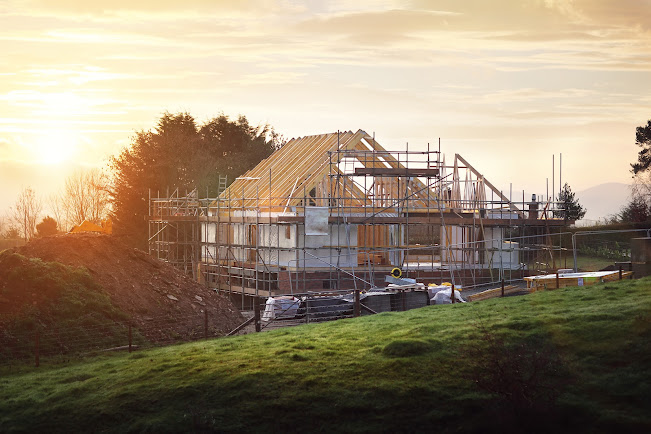How to Choose the Right Residential Property for Investment
Investing in residential developments can be a lucrative way to build wealth, but making the right choice is crucial to ensuring a strong return on investment. The UK property market offers numerous opportunities, but with so many options available, it’s essential to consider key factors before making a decision. This guide will walk you through the most important aspects to help you choose the right residential property for investment.
1. Identify Your
Investment Goals
Before diving into the
property market, define your investment objectives. Are you looking for:
- Long-term capital appreciation?
- A steady rental income?
- A buy-to-sell opportunity for quick profits?
Understanding your goals will help you filter properties that align with your financial expectations and investment strategy.
2. Research the
Local Market
Location plays a critical role
in property investment. When considering a residential development, research
the local property market to understand:
- The average property prices in the area
- Rental demand and expected yields
- Growth potential and upcoming infrastructure
projects
- Crime rates, school rankings, and local amenities
Emerging areas with planned infrastructure developments often offer better long-term growth potential.
3. Evaluate
Property Types
The UK offers various types of
residential properties, including:
- Flats & Apartments – Suitable for young professionals and city
dwellers, often providing high rental yields.
- Terraced & Semi-Detached Houses – Ideal for families, offering steady demand and
strong resale potential.
- New Build Developments – These often come with incentives like lower maintenance costs and developer warranties.
Assess the pros and cons of each property type based on your investment goals.
4. Consider the
Property Condition
New builds and off-plan developments generally require less maintenance, whereas older properties may need renovations. If considering a fixer-upper, ensure you budget for potential refurbishment costs and understand the added risks involved.
5. Assess Rental
Yield & Return on Investment
To ensure a profitable
investment, calculate the expected rental yield using the formula:
Rental Yield (%) = (Annual Rental Income / Property Purchase Price) x 100
In most UK locations, a rental
yield of 5-7% is considered strong. Additionally, factor in:
- Mortgage costs
- Property management fees
- Maintenance expenses
- Council tax and insurance
High yields do not always equate to high returns. A well-balanced combination of rental income and property appreciation is ideal.
6. Analyse Market
Trends and Future Growth Potential
Look at historical price
trends and future predictions for the area. Key indicators of future growth
include:
- Major regeneration projects
- Improved transport links (e.g., new railway
stations, motorway expansions)
- Economic development initiatives
Areas undergoing significant development often experience rapid property value appreciation, making them excellent investment choices.
7. Understand Financing
Options
Most investors opt for
buy-to-let mortgages when purchasing a residential property. Consider:
- Interest rates and loan terms
- Deposit requirements (typically 25% for
buy-to-let properties)
- Eligibility criteria and lending restrictions
A well-planned financing strategy can maximise your investment potential while minimising financial risks.
8. Consider Tax
Implications
The UK property market is
subject to various taxes, including:
- Stamp Duty Land Tax (SDLT) – Rates vary based on the property value and
whether it's a first or additional home.
- Capital Gains Tax (CGT) – Applicable if you sell the property at a
profit.
- Income Tax on Rental Earnings – Rental income is taxable, but certain expenses can be deducted.
Consult a tax advisor to understand how to structure your investment for tax efficiency.
9. Work with
Property Experts
Navigating the property market
alone can be overwhelming. Seeking professional advice from estate agents,
mortgage brokers, and property investment specialists can help you make
informed decisions. These experts can provide valuable insights on:
- Property valuation and price negotiations
- Market trends and investment hotspots
- Legal and compliance requirements
10. Conduct Due
Diligence Before Purchase
Before finalising any
investment, carry out thorough due diligence by:
- Reviewing the property’s title deeds and legal
documentation
- Conducting a professional property survey to
identify potential structural issues
- Checking for planning permissions and zoning
regulations
- Understanding service charges and ground rent obligations (for leasehold properties)
A detailed due diligence process helps avoid costly surprises and ensures a smooth transaction.
Final Thoughts
Investing in residential developments in the UK can be highly rewarding when approached with careful planning and market awareness. By identifying your investment goals, researching the local market, evaluating property types, and considering financial factors, you can make a well-informed decision that maximises your returns.
Ready to Invest in
the Right Residential Property?



Comments
Post a Comment